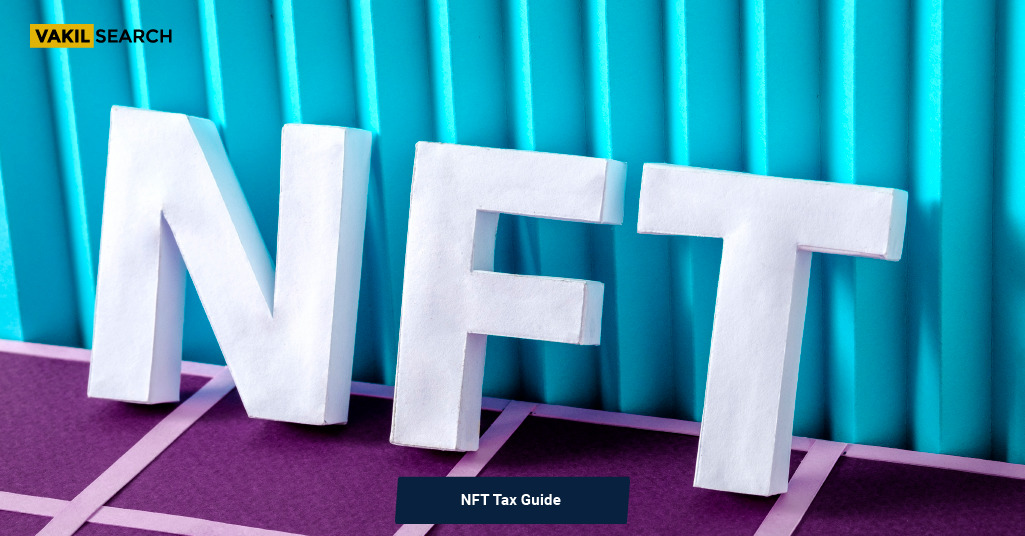Non-fungible tokens (NFTs) have revolutionized the way we perceive and trade digital assets. These unique tokens, stored on blockchain technology, have opened up new avenues for creators, collectors, and investors. However, with great innovation comes complex taxation, which is the focus of this comprehensive guide.
Introduction
The digital age has ushered in a new era of ownership and value, and NFTs are at the forefront of this transformation. In this in-depth exploration, we’ll dissect the taxation implications of NFTs, from minting your own tokens to selling them and earning royalties. We’ll also address common questions, such as the factors influencing an NFT’s value and the risks associated with this nascent market.
Minting an NFT
Minting an NFT, the process of creating a unique digital token representing ownership of a digital asset is where the journey begins for many creators. It’s an act of digital alchemy, transforming a piece of art, music, or any digital content into a tradable, verifiable asset on the blockchain.
What is Minting, and How Does it Work?
At its core, minting involves uploading your digital creation to an NFT marketplace or platform. The blockchain then generates a cryptographic token that represents your ownership of that specific digital item. This token is unique, provably scarce, and stored securely on the blockchain, making it tamper-proof and easily transferable.
Minting, however, isn’t just about creating an NFT; it’s also the inception of potential tax obligations. Creating an NFT can be seen as a realization of value, akin to mining a valuable mineral. This realization may trigger income tax implications depending on your jurisdiction.
Tax Implications of Minting
Income Tax: In some regions, the mere act of minting an NFT may be considered a taxable event. The value attributed to your creation during minting could be subject to income tax. It’s crucial to understand the tax laws in your area and whether there are specific exemptions or thresholds for digital creators.
Capital Gains Tax: Even if minting doesn’t trigger immediate income tax, you should be aware that any future sale of your NFT may incur capital gains tax. The difference between the NFT’s sale price and its original minting value can be considered a capital gain and is subject to taxation.
Record-Keeping
A meticulous record-keeping system is essential from the moment you mint an NFT. This includes documenting details such as:
- The date and time of minting.
- The platform or marketplace used for minting.
- Any associated minting fees.
- The original value is assigned to the NFT during minting.
- The digital file’s creation date and details.
- Any expenses related to the creation of the digital asset.
- These records will help you fulfill your tax obligations and provide transparency and authenticity if any disputes arise regarding your NFT.
In essence, minting an NFT is the inception of your digital creation’s financial journey, and understanding the tax implications from the start can save you headaches down the road.
Selling an NFT
Once your NFT is minted, the next logical step for many creators or investors is selling it. This is where the NFT can potentially be monetized, but it also brings about a set of tax considerations.
Capital Gains and NFT Sales
When you decide to part ways with your NFT, whether it’s through an auction, direct sale, or secondary marketplace, you enter the realm of capital gains taxation.
Capital Gains: If you sell your NFT for more than its original minting value, the profit is considered a capital gain. The tax rate for capital gains varies by jurisdiction, and it can be significantly influenced by how long you’ve held the NFT.
Short-Term vs. Long-Term Holdings
In many tax systems, the length of time you hold an asset can affect the tax rate. Short-term capital gains (from assets held for a relatively short time, often a year or less) are typically taxed at a higher rate than long-term capital gains.
Understanding the distinction is important because it may influence your decision on when to sell your NFT, especially if you’re considering it as a long-term investment.
Trading Platforms and Tax Reporting
If you’re selling your NFT on a platform, the platform may provide tax reporting tools. However, it’s essential to double-check and ensure the accuracy of these reports. The responsibility for accurate tax reporting ultimately falls on you as the NFT holder.
Additionally, the tax treatment of NFTs can be different from traditional assets like stocks or real estate. Therefore, consulting with a tax professional who understands the intricacies of cryptocurrency and digital asset taxation is advisable.
Earning Royalties on an NFT
Beyond the initial sale, many NFT creators benefit from ongoing royalties each time their NFT changes hands. These royalties are yet another facet of NFT taxation.
Royalties and Passive Income
Royalties earned from NFTs are generally considered passive income. Like any other form of income, they are subject to taxation.
Taxation of Royalties: The specific tax treatment of NFT royalties varies depending on your jurisdiction. Some places may treat them as ordinary income, while others may classify them differently.
Tax Optimization Strategies
To optimize your tax liability while earning royalties from your NFT creations, consider:
Tax Deductions: Explore potential deductions related to your creative process, such as expenses for software, equipment, or marketing.
Tax-Efficient Jurisdictions: Investigate jurisdictions with favorable tax laws for digital creators. Some regions offer tax incentives to attract tech and creative talent.
Staggered Sales: Depending on the amount of royalties you earn, consider spreading out sales to manage your tax burden more effectively.
Navigating the tax implications of earning royalties from NFTs requires careful planning and, in some cases, professional guidance to ensure you’re complying with the law while maximizing your earnings.
Also, Read:










